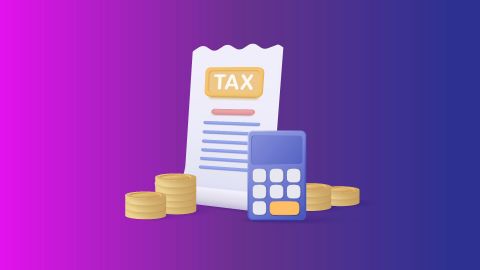Are you curious about the role of an accounting manager and the skills needed to excel in this position? Accounting managers play a pivotal role in steering a company's financial activities. They ensure that the accounts department runs smoothly, finances are accurately reported, and budgets are effectively managed. Understanding the role of an accounting manager can open the doors to a lucrative career path with significant growth opportunities.
In this article, we will explore the roles, responsibilities, and essential skills of an accounting manager. Additionally, we will look into career paths and salary insights, in comparison with a sales management role. Whether you are an aspiring accountant or looking to climb the corporate ladder in a financial role, this guide will provide valuable insights into the world of accounting management.
What is an accounting manager?
An Accounting Manager is responsible for supervising the daily operations of the accounting department, ensuring accuracy in financial reporting and adherence to regulatory standards. The role includes leading a team, preparing financial statements, and delivering key financial insights to support management decisions.
Functions of an accounting manager
Accounting managers have several key functions:
- Financial reporting: Preparing accurate financial statements
- Budget management: Creating and overseeing budgets
- Internal controls: Ensuring the accuracy and integrity of financial data
- Compliance: Adhering to financial laws and regulations
- Strategic planning: Assisting in long-term financial planning
Role of an accounting manager
Understanding the role of an accounting manager involves knowing about their daily activities. These may include:
- Supervising accounting teams: Managing the performance of junior accountants
- Forecasting: Predicting financial trends and their potential impacts
- Advising executives: Providing financial insights to aid strategic decisions
- Audit coordination: Working with auditors to ensure compliance
Responsibilities of an accounting manager
The responsibilities of an accounting manager are diverse, including:
- Account management: Overseeing all accounting functions
- Financial analysis: Analysing financial data for strategic decisions
- Policy implementation: Establishing and enforcing accounting policies
- Training: Mentoring and training junior staff
- Reporting: Preparing detailed financial reports for stakeholders
Skills needed to become an accounting manager
Hard skills:
- Financial reporting and analysis: Ability to prepare and interpret balance sheets, income statements, and cash flow statements, along with analysing complex financial data.
- Accounting software proficiency: Skilled in tools like QuickBooks, SAP, Oracle, or Microsoft Dynamics to streamline processes and generate accurate reports.
- Tax and regulatory compliance: Thorough knowledge of tax laws and financial regulations to ensure compliance and prevent legal or financial penalties.
- Budgeting and forecasting: Key involvement in preparing budgets and projecting financial outcomes to guide strategic planning.
- Internal controls: Establishment and maintenance of control systems to protect assets and ensure the integrity of financial information.
- Auditing: Familiarity with internal and external audit practices to support financial accuracy and compliance.
- Data analysis: Capability to process and evaluate large data sets to uncover trends and support data-driven decision-making.
Soft skills:
- Leadership: Ability to lead teams effectively through mentorship, performance management, and motivational strategies.
- Communication: Strong written and verbal communication skills to convey financial insights to both technical and non-technical stakeholders.
- Problem-solving: Proficient in identifying financial challenges and implementing logical, analytical solutions.
- Time management: Skilled in prioritising tasks, meeting deadlines, and managing multiple responsibilities efficiently.
- Attention to detail: High level of accuracy in reviewing financial documents to ensure reliable reporting.
- Adaptability: Openness to change and readiness to adopt new tools, processes, and regulations in a dynamic business environment.
- Ethical framework: Commitment to ethical standards and integrity in financial practices and reporting.
- Team building: Fostering a supportive and collaborative work culture that enhances team morale and productivity.
Educational requirements for an accounting manager
To become an accounting manager, candidates typically follow a structured educational path that builds foundational knowledge and advanced financial skills. Here’s a breakdown of what you need:
- Bachelor’s degree requirement: Most accounting managers begin with a Bachelor’s in Accounting or Finance. These programmes cover budgeting, economics, statistics, probability, and other core financial principles.
- Master’s degree for career advancement: A Master of Science in Accounting is often preferred or required for management roles. It deepens your understanding of tax regulations, auditing practices, and financial strategy.
- CPA exam preparation: For those aiming to become Certified Public Accountants (CPAs), a master’s degree often fulfils the academic credits needed to sit for the CPA exam and enhances readiness for its rigorous format.
- Skill enhancement for strategic roles: Postgraduate education equips future accounting managers with tools to analyse budgets, control costs, and provide high-level financial oversight across departments.
Best degrees for accounting managers:
- Accounting B.S.: Ideal for those with a strong interest in numbers and financial accuracy, this degree lays the groundwork for roles in auditing, reporting, and compliance.
- Finance B.S.: A career-focused degree that develops key skills in financial planning, investment analysis, and capital management.
- Accounting M.S.: Designed for professionals seeking senior roles, this programme strengthens expertise in public and corporate accounting, tax planning, and risk assessment.
How to become an Accounting Manager
Becoming an accounting manager requires time, education, relevant experience, and dedication. This role is not entry-level and demands prior work experience in the accounting field. Below is a breakdown of the educational and professional steps typically needed to pursue a career as an accounting manager. Optional credentials and advanced education that can enhance career opportunities are also outlined.
Steps to becoming an accounting manager:
- Earn a bachelor's degree: A bachelor's degree in accounting or a related field is essential. This typically requires four years of full-time study.
- Complete an internship: Many undergraduate programs offer internships to help students gain hands-on experience. Internships provide valuable insights into the field and can make securing your first entry-level job easier after graduation.
- Gain professional experience: Most accounting managers start their careers as accountants or auditors, building approximately five years of work experience before stepping into a managerial role.
- Obtain an accounting credential (optional): Certifications such as CA (Chartered Accountant), CPA (Certified Public Accountant) or CMA (Certified Management Accountant) can set you apart from other candidates and may help negotiate a higher starting salary.
- Pursue a master’s degree (optional): While not always required, some employers prefer or mandate a master’s degree in accounting or a related field. This qualification can lead to higher-level roles and better compensation.
By following these steps, aspiring accounting managers can build the foundation for a successful career and enhance their prospects with additional education and credentials.
Career path of an accounting manager
The journey to becoming an accounting manager typically involves:
- Education: A bachelor’s degree in accounting or finance
- Certifications: Chartered Accountant (CA) or Certified Public Accountant (CPA)
- Experience: Extensive experience in accounting roles
- Networking: Building professional relationships within the industry
- Continuous learning: Keeping up to date with accounting standards and technologies
Salary and benefits of an accounting manager
Accounting managers enjoy competitive salaries and benefits, including:
- Average salary: INR 8-12 lakh per annum
- Bonuses: Performance-based bonuses
- Health benefits: Comprehensive medical cover
- Retirement plans: Contribution towards provident funds
Sales vs Accounting management
Comparing sales management and accounting management reveals different focuses:
- Sales management: Focuses on driving revenue through sales strategies
- Customer relations: Building and maintaining customer relationships
- Sales targets: Setting and achieving sales goals
- Accounting management: Concentrates on maintaining financial health
- Financial integrity: Ensuring accurate and compliant financial records
- Budgeting: Managing and forecasting budgets
Conclusion
To become an accounting manager, a strong educational foundation, the right skill set, and a clear career trajectory are essential. This role offers leadership in financial operations, promising growth prospects, and a competitive salary. Unlike sales roles, it prioritises precision, regulatory compliance, and analytical thinking. Take the next step in your CA career with confidence, explore the benefits of a Bajaj Finserv CA Loan designed to support your professional goals.
Boost your CA career as an accounting manager with Bajaj CA Loan
Aspiring CAs can advance their careers with Bajaj Finserv CA Loans, which provide financial support for further certifications and studies. Accounting managers play a crucial role in financial oversight, strategic planning, and risk management within organisations.




